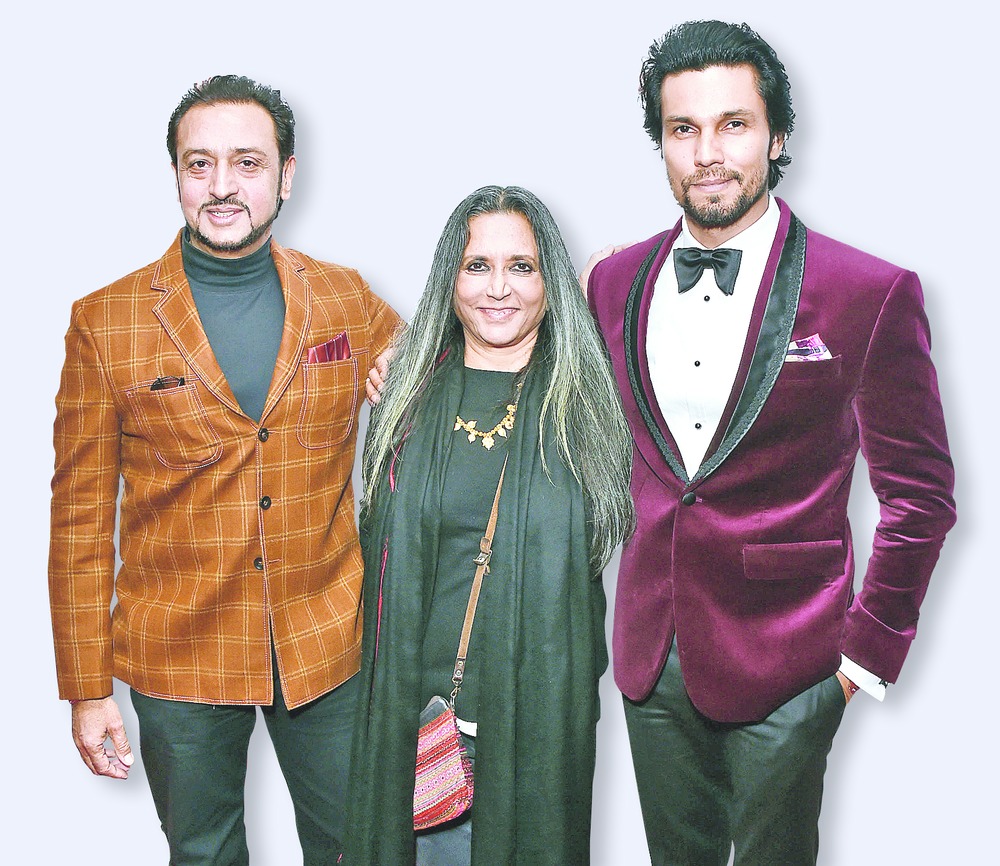
The man in Aligarh is humming to himself, returning home in a rickshaw at night. The rickshaw-puller helps him with his shopping bags and takes them upstairs to his flat. Minutes later, all hell breaks loose as intruders enter with cameras.
Hansal Mehta's film Aligarh takes the viewer straight into the night when a senior professor in Aligarh Muslim University was photographed in bed with his young male lover. The university suspended him on grounds of immoral behaviour. Based on the real incident, Mehta's film builds the narrative through the character of a rookie journalist, Deepu, who wants to investigate the incident.
"It is not a story about gay rights; it is a political story," says Deepu (portrayed by Rajkummar Rao) as he sets out to uncover whether the professor was set up. Manoj Bajpayee gives a sensitive performance as the gentle, poetry-loving professor who is hounded by his colleagues. Apurva Asrani's nuanced screenplay takes a look at the gay male experience in India with sensitivity.
The film had a sold-out premiere at the recently concluded London Film Festival with Mehta and Asrani in attendance. The film will go on general release next year. Mehta said it was possible to make a film like Aligarh as there was an audience for bold films in India.

The 59th BFI London Film Festival, which concluded on October 18, showcased several films from the Indian subcontinent, from controversial themes to gangster movies. It was veteran director Deepa Mehta's turn to try her hand at something new. Beeba Boys is the story of gang wars set in the badlands of Vancouver, where there is a large Indian population.
Uncompromisingly loud, with a thumping techno-bhangra beat and a wardrobe of technicolour sharp-suits, the film showcases gangland culture with an Asian twist. The killers go home and eat parathas cooked by their mothers. Randeep Hooda plays the leader of the Beeba Boys gang while Gulshan Grover is the local don, Robbie Grewal.
"You either love it or hate it," said Cary Rajinder Sawhney, curator of South Asian films at the London Film Festival.
Indian films at the festival included Meghna Gulzar's Talvar (Guilty) based on the Aarushi Talwar murder case, Arunoday (Sunrise) by Partho Sen-Gupta, about a policeman haunted by the kidnapping of his daughter, Kothanodi, a debut film by Bhaskar Hazarika, and The New Classmate by Ashwini Iyer Tiwari. An 11-minute film based on the life of artist F.N. Souza, An Old Dog's Diary by Shai Heredia and Shumona Goel, walked away with the Best Short Film Award.

While films about refugees played a major role at the festival with entries from Mexico, Italy and France, it was the Palme d'Or winner from Cannes, Dheepan, which drew the crowds.
Directed by Jacques Audiard, the film focuses on three Sri Lankan Tamils who come together to pose as a family unit and travel to France as refugees. They have all lost their own families in the war. Dheepan (Antonythasan Jesuthasan) is a Tamil Tiger who is trying to leave the violence behind and return to civil life. His "wife" Yalini (Kalieaswari Srinivasan) is sullen and reluctant to go out and earn a living. Playing their "daughter" is Claudine Vinasithamby. The family set up their new home in a bleak apartment in the suburbs of Paris, only to find they are in a different war zone, one with drug mafia and local gang wars.
While Dheepan and his family are faceless refugees who are forging a family unit, it is the true story of the most famous teenager in the world, Malala Yousafzai, and her parents, that earned its director, Davis Guggenheim, five-star reviews.
The relationship between father and daughter is at the heart of the poignant documentary, He Named Me Malala, which had its gala premiere at the festival. While Malala did not attend the screening, her parents walked the red carpet and greeted the cheering crowds.
For Guggenheim (award-winning director of An Inconvenient Truth), it was important to capture not just the public persona of Malala, but enter her everyday life with her parents and brothers. He spent 18 months with the Yousafzai family at home in Birmingham and on the road in Nigeria, Kenya, Abu Dhabi and Jordan.
The film uses interviews, news clips and animation to tell the story. Hand-drawn animation adds a magical touch to the film bringing Malala's childhood in the Swat Valley to life. We learn that she was named after the legendary Pashtun folk heroine Malalai of Maiwand, a teenager who journeyed to the battlefield when the Afghans were fighting against the British in the 1880s. When she saw her countrymen losing their morale, Malalai grabbed a flag and rallied the soldiers, only to be struck down by bullets. Buoyed by her words, the Afghan soldiers won the day.
In naming his daughter Malala, Ziauddin wanted a name that would always remind her of the power she could have as a woman. We learn that the Yousafzai family tree goes back hundreds of years, but only the men are named on it. Ziauddin makes an entry on the tree and writes "Malala". It is the turning point in the family's history.
Guggenheim asks the difficult questions, about whether it was right for Zia to expose his young daughter to danger, and whether Malala herself is carrying a burden far beyond her age.
To which, she replies: "My father only gave me the name Malalai. He didn't make me Malalai. I chose this life." He Named Me Malala goes on general release on November 6.










